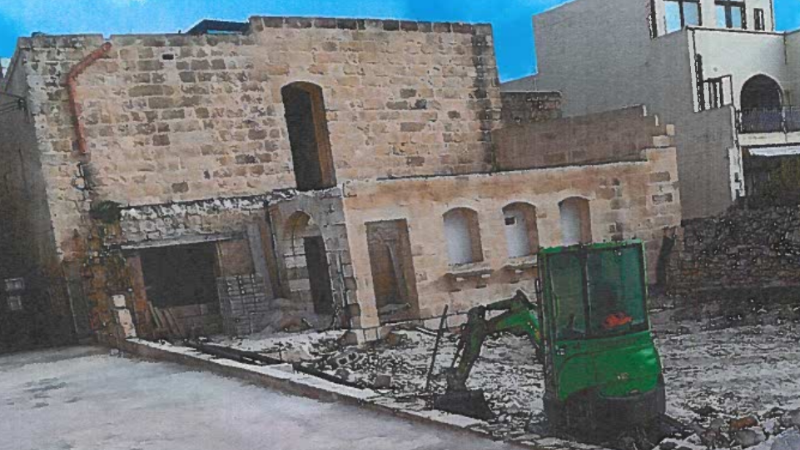A report by the OSCE (Organization for Security and Co-operation in Europe) analysing the media bill put forward by the Maltese government has noted a number of gaps in the proposals, and listed recommendations needed to strengthen both the bill and press freedom in Malta.
The report recommends that the right of access to information be strengthened at a constitutional level by “expressly” incorporating basic international and regional principles in order to effectively exercise this right. The right to seek information should also be included as a basic component of the constitutional right to freedom of expression and freedom of information.
“This will strengthen the constitutional protection provided to the specific right to access to information,” the author, independent media freedom expert Dr Joan Barata, wrote.
“Freedom of expression and freedom of information are essential human rights that protect individuals when holding opinions and receiving and imparting information and ideas of all kinds,” the report said. “It also presents broader implications, as the exercise of such rights is directly connected with the aims and proper functioning of a pluralistic democracy.”
The OSCE’s report is the latest critique of the bill put forward by the government, which international press freedom NGO Article19 said contains proposals that are “regulating, (rather) than enabling media”.
A similar alteration to Malta’s constitution and freedom of information was recommended by the board of the public inquiry into the assassination of journalist Daphne Caruana Galizia. The board, made up of three former judges, had recommended that the Maltese constitution “should recognise an individual’s right to receive the information from the State and public administration, and the State and public authorities are obliged to provide such information”.
The board also recommended legislative changes to the Freedom of Information Act in order to limit instances where public administration may refuse to provide information that is in the public interest.
“In the search for truth, there needs to be an open public administration to ensure a participatory democracy,” the board said.
A legal source who spoke to The Shift explained that enshrining the right to information in the constitution will “bind governments going forward to also respect the spirit of the law rather than use the letter of the law to defeat its spirit”.
“Regrettably the government’s proposals to implement the board’s recommendations omitted both the necessary changes to the Freedom of Information Act as well as the related amendment to the constitution to enshrine the right to information,” the source said. “The OSCE rapporteur rightly highlighted the need for these changes and it is hoped that, if there is goodwill and the recommendations are to be implemented in an effective manner, these will be included in the next draft.”
In February, The Shift reported that the committee of media experts appointed by Prime Minister Robert Abela in accordance with the public inquiry’s recommendation to implement press freedom reforms was not consulted on the drafting of the Bills that the government presented to parliament. Opposition MP and lawyer to the Caruana Galizia family Therese Comodini Cachia had also criticised the government’s proposals as “not being enough to create an enabling environment for independent journalism in Malta”.
Malta press freedom organisations back call for constitutional changes
Proposals submitted to the media experts committee by The Daphne Caruana Galizia Foundation, PEN Malta, SOS Malta and Repubblika, similarly call on the government to amend the constitution to entrench the State’s obligations to the press, as well as to “explicitly” recognise press freedom as the fourth pillar of democracy.
“The Constitution must include clear and strong recognition of press freedom rights that have been recognised by the European Court of Human Rights,” another recommendation reads. “These include, but not only, decisions concerning the protection of sources, timely and effective access to information, protection of journalists, and recognition of journalism for its function as a public watchdog.”
Other recommendations
The OSCE report also strongly recommends removing the possibility of imposing additional restrictions on the constitutional right to freedom of expression “for the purpose of maintaining confidence in the public service”.
It was also recommended to adjust the language of the constitutional provision on hate speech to reflect international norms, to introduce a safeguard in cases where the original author has died, and to eliminate provisions regarding the recognition and enforcement of foreign judgements in cases of defamation, replacing them with a comprehensive anti-SLAPP legal regime on par with international standards.
Structures should also be established for the protection of democratic society, including the protection of journalists, other persons with a role in the media and in non-governmental organizations, and persons in public life, including the designation and establishment of concrete units and the definition of clear response protocols.
It also calls for the introduction and formulation of proper engagement and coordination mechanisms with civil society and media organisations for the operation of early-warning and rapid-response mechanisms, the need to set up training programmes for state authorities responsible for the protection of journalists and other media actors, and the designation of proper prosecution authorities and mechanisms.













Prosit Joanna! Great article. Shame that these clowns in government are doing everything possible not to comply with any recommendations